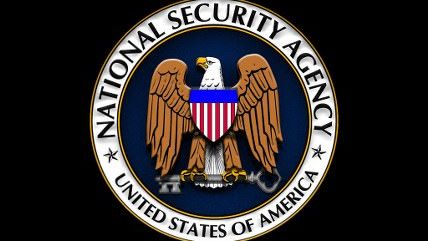Yes, Actually, the NSA Says They Can Eavesdrop on Phone Calls Without Warrants (UPDATED)

I've run out of interesting ways of combining humor, horror and outrage to introduce the latest National Security Agency revelations. Here you go. Read what Declan McCullagh at CNet reports:
The National Security Agency has acknowledged in a new classified briefing that it does not need court authorization to listen to domestic phone calls.
Rep. Jerrold Nadler, a New York Democrat, disclosed this week that during a secret briefing to members of Congress, he was told that the contents of a phone call could be accessed "simply based on an analyst deciding that."
If the NSA wants "to listen to the phone," an analyst's decision is sufficient, without any other legal authorization required, Nadler said he learned. "I was rather startled," said Nadler, an attorney and congressman who serves on the House Judiciary committee.
Not only does this disclosure shed more light on how the NSA's formidable eavesdropping apparatus works domestically it also suggests the Justice Department has secretly interpreted federal surveillance law to permit thousands of low-ranking analysts to eavesdrop on phone calls.
I'm guessing we can look forward to the "We would never use this power irresponsibly" arguments.
UPDATE: Julian Sanchez of the Cato Institute worries that the statements from the briefing could be the subject of misinterpretation:
One possibility is just that Rep. Nadler is talking about analysts having discretion to get the subscriber information on a suspicious number and blurring that with content. But those are two pretty different things, and it seems unlikely he'd make that error. So let's assume for a moment that's not it.
What seems more likely is that Nadler is saying analysts sifting through metadata have the discretion to determine (on the basis of what they're seeing in the metadata) that a particular phone number or e-mail account satisfies the conditions of one of the broad authorizations for electronic surveillance under §702 of the FISA Amendments Act. Those authorizations allow the targeting of whole groups or "categories of intelligence targets," as the administration puts it. Once the FISA Court approves targeting procedures, they have no further role in deciding which specific accounts can be spied on. This is, as those of us who wrote about the FAA during its recent reauthorization observed, kind of a problem.
Read his comments here.
Follow this story and more at Reason 24/7.
Spice up your blog or Website with Reason 24/7 news and Reason articles. You can get the widgets here. If you have a story that would be of interest to Reason's readers please let us know by emailing the 24/7 crew at 24_7@reason.com, or tweet us stories at @reason247.


Show Comments (252)